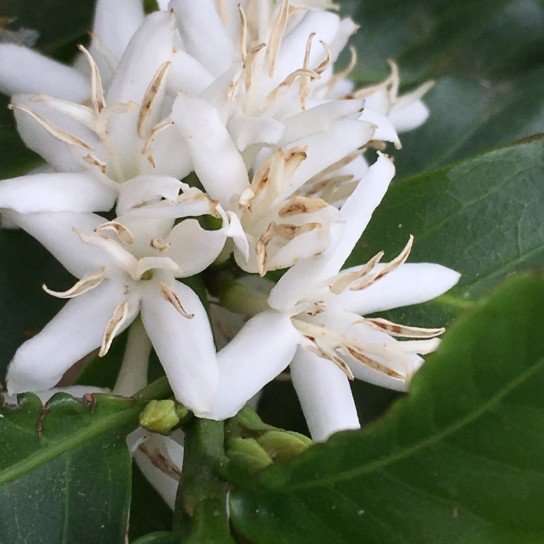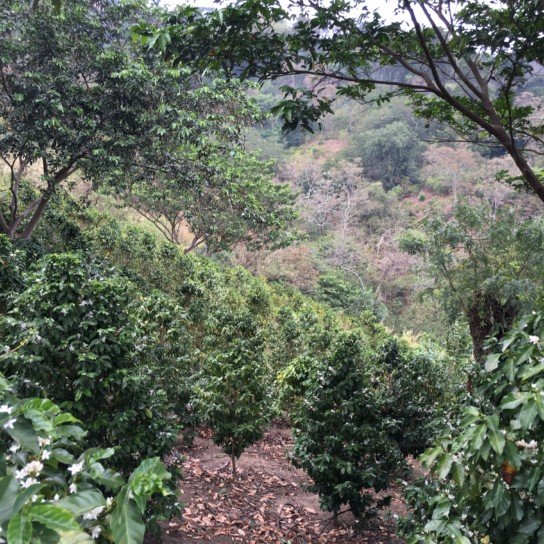- Stock
- El Salvador - El Ingenio
El Salvador - El Ingenio





El Salvador - El Ingenio
Tasting notes: Chocolate, Cherry, Almond
Region: Comasagua
Altitude: 1,800m
Process: Washed
Varietals: Bourbon
Tasting notes: Chocolate, Cherry, Almond
Region: Comasagua
Altitude: 1,800m
Process: Washed
Varietals: Bourbon
El Ingenio dates back to 1875 when Mr. Juan Urrutia planted the first coffee trees at high altitude in volcanic soil and the first crop of 27 bags was produced. As time passed the farm grew and the family worked hard to improve the quality year after year leading us to the present day with sixth-generation Enrique, Rene and Gustavo running the farm, with their father Gustavo still involved as an advisor, giving them the benefit of his experience. Over the years, they have placed in the finals for Cup of Excellence 7 times, as well as gaining accolades from trade bodies and national associations such as Exporter of the Year in 2015 and landing in the top 5 in 2017.
All the Urrutias Estate coffees are 100% shade grown and native trees are planted every year and to prevent erosion. The main trees which are grown are the izote and the copalchi which act as natural wind barriers. A UNESCO Biosphere Reserve, the farm is unsurprisingly Rainforest Alliance certified and is home to many resident and migratory birds. Specifically, they are home to 24 different species of mammals, 259 species of insects and over 120 species of migratory birds. In total, they have over 100 manzanas (approx. 170 acres) of natural forest, which is about 20-30% of the El Ingenio farm.
The wet mill, San Antonio, gains its name from the river that runs close by. Coffee is passed through various depulpers that have different settings. The first one is calibrated to ripe red cherries. The processing machine or “criba” then moves it back up to the next depulper if the cherry was not pulped by the first. They have four depulping lines if needed. This means they can separate the best cherries with the depulper first, before a 13-14 hour dry fermentation stage. The coffee is then washed and placed into a wet fermentation tank before progressing to the drying stage., which is split between guardiolas and patios depending on the weather, need, and volume of cherry being delivered to the mill.
El Ingenio dates back to 1875 when Mr. Juan Urrutia planted the first coffee trees at high altitude in volcanic soil and the first crop of 27 bags was produced. As time passed the farm grew and the family worked hard to improve the quality year after year leading us to the present day with sixth-generation Enrique, Rene and Gustavo running the farm, with their father Gustavo still involved as an advisor, giving them the benefit of his experience. Over the years, they have placed in the finals for Cup of Excellence 7 times, as well as gaining accolades from trade bodies and national associations such as Exporter of the Year in 2015 and landing in the top 5 in 2017.
All the Urrutias Estate coffees are 100% shade grown and native trees are planted every year and to prevent erosion. The main trees which are grown are the izote and the copalchi which act as natural wind barriers. A UNESCO Biosphere Reserve, the farm is unsurprisingly Rainforest Alliance certified and is home to many resident and migratory birds. Specifically, they are home to 24 different species of mammals, 259 species of insects and over 120 species of migratory birds. In total, they have over 100 manzanas (approx. 170 acres) of natural forest, which is about 20-30% of the El Ingenio farm.
The wet mill, San Antonio, gains its name from the river that runs close by. Coffee is passed through various depulpers that have different settings. The first one is calibrated to ripe red cherries. The processing machine or “criba” then moves it back up to the next depulper if the cherry was not pulped by the first. They have four depulping lines if needed. This means they can separate the best cherries with the depulper first, before a 13-14 hour dry fermentation stage. The coffee is then washed and placed in to a wet fermentation tank before progressing to the drying stage., which is split between guardiolas and patios depending on the weather, need, and volume of cherry being delivered to the mill.
